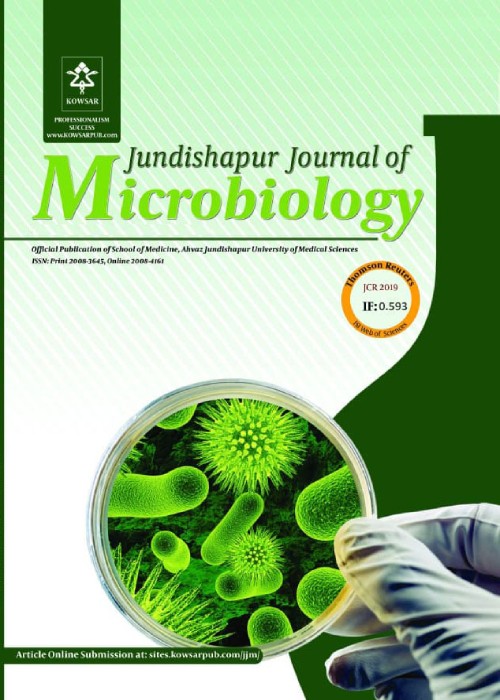Antagonistic Characteristics Against Food-borne Pathogenic Bacteria of Lactic Acid Bacteria and Bifidobacteria Isolated from Feces of Healthy Thai Infants
Author(s):
Abstract:
Background
Food-borne pathogens are among the most significant problems in maintaining the health of people. Many probiotics have been widely reported to alleviate and protect against gastrointestinal infections through antibacterial secretion. However, the majority of them cannot always play antagonistic roles under gut conditions. Probiotic bacteria of human origin must possess other protective mechanisms to survive, out-compete intestinal flora and to successfully establish in their new host at a significant level.Objectives
Probiotic characteristics of Lactic Acid Bacteria (LAB) and bifidobacteria isolated from the feces of Thai infants were primarily investigated in terms of gastric acid and bile resistances, antibacterial activity and mucin adhesion ability. Antagonistic interaction through secretion of antibacterial compounds and competitive exclusion against food-borne pathogens were also evaluated.Materials And Methods
Culturable LAB and bifidobacteria were isolated from feces of Thai infants. Their ability to withstand gastric acid and bile were then evaluated. Acid and bile salt tolerant LAB and bifidobacteria were identified. They were then further assessed according to their antagonistic interactions through antibacterial secretion, mucin adhesion and competitive mucin adhesion against various food-borne pathogenic bacteria.Results
Gastric acid and bile tolerant LAB and bifidobacteria isolated from healthy infant feces were identified and selected according to their antagonistic interaction against various food-borne pathogenic bacteria. These antagonistic probiotics included four strains of Lactobacillus rhamnosus, two strains of L. casei, five strains of L. plantarum, two strains of Bifidobacterium longum subsp. longum and three strains of B. bifidum. All strains of the selected LAB inhibited all pathogenic bacteria tested through antibacterial secretion, while bifidobacteria showed high level of competitive exclusion against the pathogenic bacteria.Conclusions
These human-derived LAB and bifidobacteria exhibited different mechanisms involved in pathogenic inhibition. Therefore a combination of these probiotic strains could be a great promise and possibility for the development of probiotic products to effectively prevent and control food-borne infection in humans.Keywords:
Language:
English
Published:
Jundishapur Journal of Microbiology, Volume:8 Issue: 6, Jun 2015
Page:
1
magiran.com/p1426337
دانلود و مطالعه متن این مقاله با یکی از روشهای زیر امکان پذیر است:
اشتراک شخصی
با عضویت و پرداخت آنلاین حق اشتراک یکساله به مبلغ 1,390,000ريال میتوانید 70 عنوان مطلب دانلود کنید!
اشتراک سازمانی
به کتابخانه دانشگاه یا محل کار خود پیشنهاد کنید تا اشتراک سازمانی این پایگاه را برای دسترسی نامحدود همه کاربران به متن مطالب تهیه نمایند!
توجه!
- حق عضویت دریافتی صرف حمایت از نشریات عضو و نگهداری، تکمیل و توسعه مگیران میشود.
- پرداخت حق اشتراک و دانلود مقالات اجازه بازنشر آن در سایر رسانههای چاپی و دیجیتال را به کاربر نمیدهد.
In order to view content subscription is required
Personal subscription
Subscribe magiran.com for 70 € euros via PayPal and download 70 articles during a year.
Organization subscription
Please contact us to subscribe your university or library for unlimited access!


